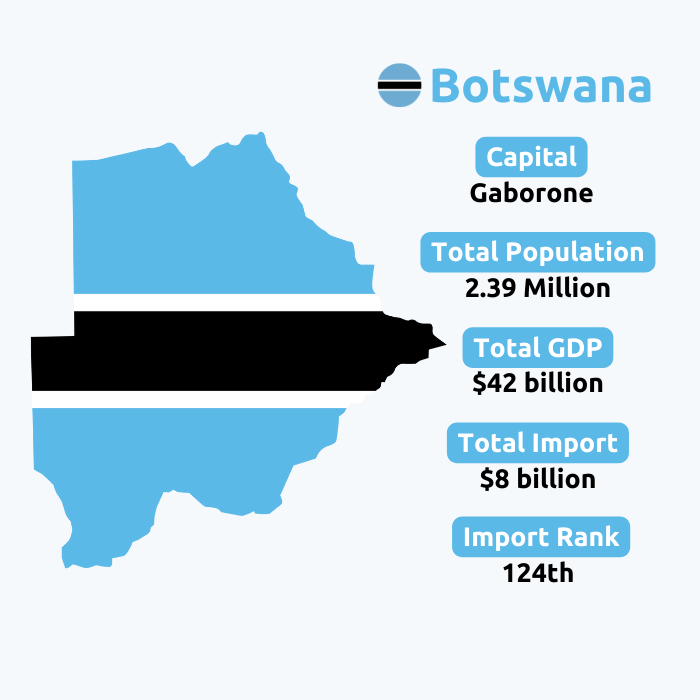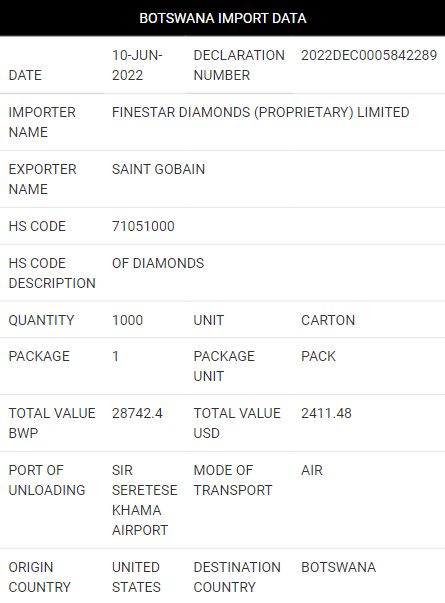Botswana Import Data
Located in southern Africa, Botswana, usually called the Republic of Botswana, is a landlocked nation. 70% of the nation is flat, and it borders the Kalahari Desert. Zimbabwe, Namibia, and South Africa all border Botswana. According to data on imports from Botswana, the country ranked 129th out of 226 nations in terms of total imports in 2023. Botswana, a landlocked country in Southern Africa, has been experiencing steady economic growth in recent years. With a focus on diversifying its economy, Botswana has established itself as an attractive destination for international trade. To understand the dynamics of Botswana's economy and analyze its trade patterns, it is crucial to examine Botswana's import data.
According to Botswana import data, which is based on customs data, the value of goods imported into Botswana in 2023 was $6.41 billion, with a decline of 21% from the previous year. Botswana’s total GDP is $47 billion, while its import share in GDP is 35.71%. Botswana is also a part of trading blocs such as SACUM, GATT, and WTO. Botswana’s biggest imports in 2023 are mineral fuels and oils, while the biggest import partner of Botswana is South Africa. Let us now delve into a comprehensive overview of Botswana's imports, highlighting the key sectors, top trading partners, and recent trends in its import data.





